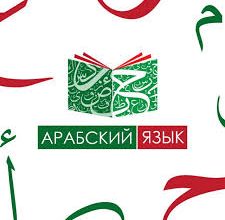Bridging the Gap: A Comprehensive Guide to Russian Translation
The Russian language, boasting a rich literary heritage and a global presence, connects individuals and cultures across vast distances. Whether you’re seeking to understand Russian literature, conduct business in Russia, or connect with Russian speakers, navigating the intricacies of Russian translation is crucial. This comprehensive guide delves into the world of Russian translation, exploring its various forms, challenges, and best practices.
The Landscape of Russian Translation:
Russian translation encompasses a broad spectrum of services, each requiring specific skills and expertise:
- Literary Translation: This art form involves translating literary works, such as novels, poems, and plays, while preserving their artistic merit, cultural nuances, and intended emotional impact. Literary translators possess a deep understanding of both languages, literary devices, and the cultural contexts of the source and target texts.
- Technical Translation: This form focuses on translating technical documents, manuals, and instructions, ensuring accuracy and clarity for the intended audience. Technical translators require expertise in both the subject matter and the technical terminology specific to each language.
- Legal Translation: Accurately conveying legal concepts and terminology across languages is paramount. Legal translators possess a strong grasp of both legal systems and the intricacies of legal language in both Russian and the target language.
- Website Localization: Adapting websites for Russian audiences involves translating content, cultural references, and user interfaces to ensure a seamless user experience. Website localization specialists combine translation skills with cultural understanding and web development expertise.
- Medical Translation: Precise translation of medical documents, including patient records, research papers, and medication instructions, is critical for patient safety and effective healthcare delivery. Medical translators possess knowledge of medical terminology and cultural sensitivities related to healthcare.
Challenges in Russian Translation:
Translating between Russian and other languages presents unique challenges:
- Grammatical Differences: The Russian language has a complex grammatical structure, with features like noun cases and verb conjugations absent in many other languages. Translators must find creative solutions to convey grammatical nuances accurately.
- Cultural Context: Language is deeply intertwined with culture. Jokes, idioms, and metaphors may not translate literally, requiring translators to find culturally appropriate equivalents in the target language.
- Double Meanings: Some Russian words have multiple meanings depending on the context. Translators must carefully analyze the surrounding text to determine the intended meaning.
- Formal vs. Informal Registers: Russian has distinct formal and informal registers, and selecting the appropriate register is crucial for conveying the intended tone and level of formality.
Best Practices for Effective Russian Translation:
To achieve high-quality Russian translations, consider these best practices:
- Expertise Matters: Choose a translator with extensive experience in the specific type of translation needed (literary, technical, legal, etc.).
- Subject Matter Knowledge: If the text is specialized, ensure the translator has a strong understanding of the relevant subject matter.
- Cultural Sensitivity: A good translator recognizes the importance of cultural nuances and strives to preserve them in the target language.
- Readability and Fluency: Prioritize a clear and fluent translation that reads naturally in the target language.
- Terminology Consistency: Maintain consistency in translating technical terms throughout the text.
- Quality Assurance: Consider having a second translator with different expertise review the translated text for accuracy and flow.
Technology’s Role in Russian Translation:
Machine translation (MT) tools have become increasingly sophisticated, offering quick and often cost-effective solutions for basic translations. However, MT technology still struggles with complex sentence structures, cultural nuances, and maintaining the intended tone of the source text.
When to Choose Machine Translation:
- Simple, non-critical content: For content like short news articles or website headers, MT can provide a basic understanding.
- Draft translations: MT can be used to generate a rough translation that a human translator can then refine and edit.
When to Choose Human Translation:
- Critical or sensitive documents: For legal documents, medical records, or marketing materials, the accuracy and nuance of human translation are crucial.
- Creative content: Literary works, poems, and other creative content require a human translator’s ability to capture the essence of the original text.
In Conclusion:
Russian translation plays a vital role in connecting people across language barriers. Understanding the different types of translation, the challenges involved, and best practices can ensure effective communication. By combining human expertise with the advancements in translation technology, we can bridge the language gap and foster greater understanding between cultures.
You may need a Russian translator to translate your documents, if you are going to study in Russia, trade with this country, or decide to migrate. In addition, Russia in terms of science and especially astronomy is of a high position. So if you are an academic man, you can use Russian papers and books as a source of your research, so you may need a Specialized translation.
Differences between English and Russian
English and Russian are different in terms of alphabets. English uses Latin alphabets while Russian uses Cyrillic alphabets.
The other difference between the two languages is their pronunciation. In English you do not see lots of rules of pronunciation, while in Russian there are so many rules for pronunciation so you will not see an irregular pronunciation in Russian in spite of English.
In addition, there are some suffixes for each word which is a sign of being subjective, objective, etc. the suffixes also may turn a word to a verb. However there are some irregular words.
Additionally, the order of words in Russian differs from English. In Russian you put words in a sentence based on the emphasis you want to put on each.
Why Russian translation is difficult?
As it was said, a sentence in Russian can become in variable forms in terms of the order of words. When a translator is translating English text to Russian or vice versa, he/she should break the sentence into smaller parts and change structure of the sentence completely.
Besides the number of suffixes is too high, and a translator needs to know them.
Hoortash institute offers Russian translation services to applicants. Our translators are experienced and professional, so you can trust in the accuracy of what you will receive.





